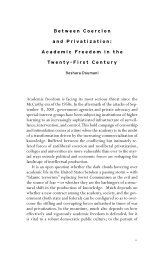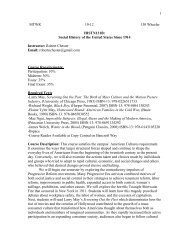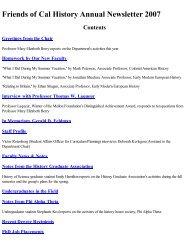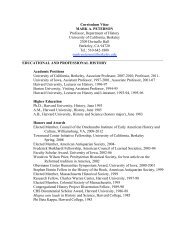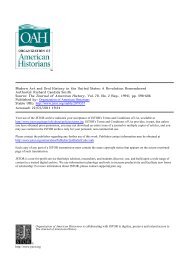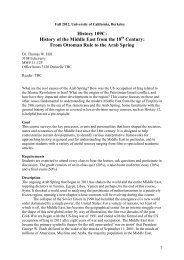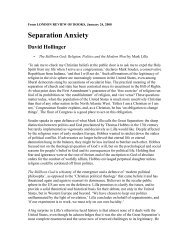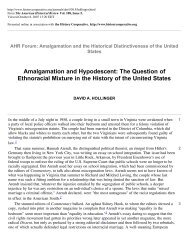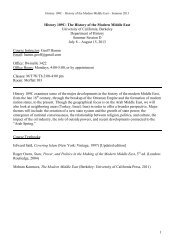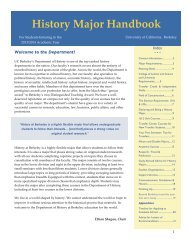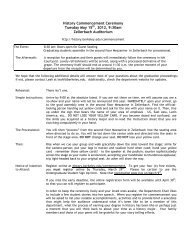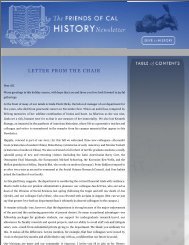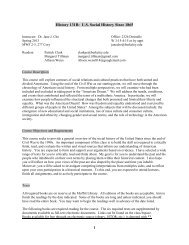My Grandmother and Other Stories: Histories of the Palestinians as ...
My Grandmother and Other Stories: Histories of the Palestinians as ...
My Grandmother and Other Stories: Histories of the Palestinians as ...
Create successful ePaper yourself
Turn your PDF publications into a flip-book with our unique Google optimized e-Paper software.
checkpoint on <strong>the</strong> sou<strong>the</strong><strong>as</strong>t side <strong>of</strong> <strong>the</strong> neighbourhood, <strong>the</strong>re are two lanes–one for<br />
Jewish settlers <strong>and</strong> <strong>the</strong> o<strong>the</strong>r for <strong>Palestinians</strong>. A somewhat similar arrangement is<br />
applied, albeit less strictly, at <strong>the</strong> Atarot checkpoint to <strong>the</strong> southwest.<br />
Since both Naila <strong>and</strong> I work in Jewish West Jerusalem, we were mainly worried about<br />
<strong>the</strong> time it takes to get through <strong>the</strong> checkpoint, which varies from 15 minutes to one<br />
hour. But we were told that in c<strong>as</strong>es when <strong>the</strong> checkpoint is very crowded, <strong>the</strong>re are<br />
side roads that can be used if we don’t mind risking <strong>the</strong> condition <strong>of</strong> our car. As proud<br />
owners <strong>of</strong> a 1985 Ford Fiesta, bumpy roads weren’t a major consideration.<br />
The traffic jams at <strong>the</strong> checkpoints; <strong>the</strong> noise; <strong>the</strong> long lines <strong>of</strong> cars; <strong>the</strong> notorious<br />
Palestinian vans that p<strong>as</strong>s everyone by driving on <strong>the</strong> sidewalks; <strong>the</strong> soldiers who<br />
enjoy checking your identity card slowly to keep you <strong>and</strong> <strong>the</strong> rest <strong>of</strong> <strong>the</strong> drivers<br />
waiting, using <strong>the</strong>ir authority to make drivers stop, start, open <strong>the</strong> trunk or hood, check<br />
under <strong>the</strong> seat–all this w<strong>as</strong> somewhat expected. Nothing, however, prepared us for<br />
<strong>the</strong> flair for cruelty exhibited by so many <strong>of</strong> <strong>the</strong> soldiers. This changed <strong>the</strong> ten-minute<br />
drive to my college into an oppressive <strong>and</strong> unpredictable hour-long trip. (Knowing<br />
that Amer h<strong>as</strong> to wake up at four o’clock in <strong>the</strong> morning in order to reach Ramallah by<br />
nine o’clock when visiting his family in Nablus, I am embarr<strong>as</strong>sed to tell my modest<br />
story. For him <strong>the</strong> usual 45 minute drive between <strong>the</strong>se two cities becomes a four-hour<br />
trip, longer than a flight from any airport in <strong>the</strong> Middle E<strong>as</strong>t to a city in Europe.)<br />
Even more exacerbating w<strong>as</strong> <strong>the</strong> fact that one w<strong>as</strong> never sure if <strong>the</strong> checkpoints would<br />
be open <strong>the</strong> next morning. Would you get out <strong>of</strong> <strong>the</strong> neighbourhood? Should you park<br />
your car <strong>and</strong> walk? Or should you just turn back <strong>and</strong> call your boss, your pr<strong>of</strong>essor,<br />
or your friends to say that you are sorry but you won’t be able to come today. This<br />
state <strong>of</strong> uncertainty is ever-present for those behind <strong>the</strong> checkpoints. It frustrates plans<br />
for c<strong>as</strong>ually visiting friends for dinner or c<strong>of</strong>fee. It kills appetite for life outside <strong>the</strong><br />
neighbourhood. For Naila <strong>and</strong> I, spontaneity w<strong>as</strong> lost <strong>and</strong> we began living in a kind<br />
<strong>of</strong> self-imposed curfew. Relatives <strong>and</strong> friends found it equally difficult to visit us.<br />
Regular visitors Hanan, Alice <strong>and</strong> Rania, after being stuck at <strong>the</strong> checkpoint once for<br />
four hours on <strong>the</strong>ir way to visit us, declared that <strong>the</strong>y were not prepared to chance it<br />
again. <strong>My</strong> bro<strong>the</strong>r Abed w<strong>as</strong>n’t ready to put his family through that because <strong>of</strong> my<br />
crazy decision to live behind a checkpoint.<br />
With <strong>the</strong> eruption <strong>of</strong> <strong>the</strong> second Intifada in October 2000, things got worse. As middleaged<br />
Palestinian Israeli citizens living in <strong>the</strong> Galilee, we had experienced various<br />
kinds <strong>of</strong> discrimination, but <strong>the</strong> concept <strong>of</strong> closures <strong>and</strong> curfews declared by <strong>the</strong> army<br />
w<strong>as</strong> new <strong>and</strong> strange. I should admit that <strong>the</strong>se curfews weren’t violent or dangerous<br />
<strong>as</strong> in o<strong>the</strong>r Palestinian are<strong>as</strong>, i.e. <strong>the</strong>y were not accompanied by soldiers with guns<br />
breaking down doors, searching houses or shooting wanted Palestinian activists. In<br />
general, immediately after announcing <strong>the</strong> curfew <strong>the</strong> army vehicle would disappear.<br />
Jerusalem Quarterly 30 [ 109 ]



